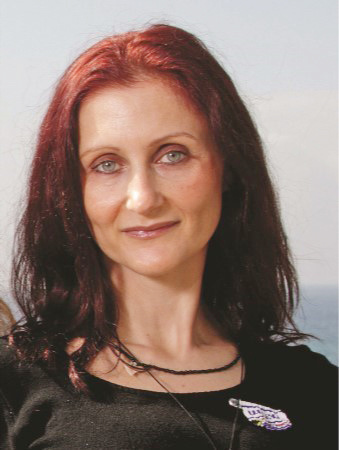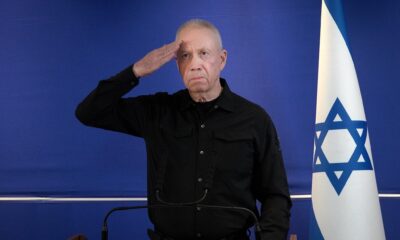
OpEds

Israel’s days of turmoil
“Unity is more important than any legislation. Such legislation should come to an immediate halt. We must stand as one nation for Israel’s 75th year of independence as a Jewish, democratic, free, and liberal state,” said Major General (Res) Doron Almog, the chairperson of the Jewish Agency earlier this week. Almog was the latest in a growing chorus of voices in Israel warning about the effects the proposed judicial reforms are having on Israel’s society.
As Israel approaches 75 years of independence, many are asking what kind of Israel it will be.
Israel is having an unprecedented moment in its history and is poised on a delicate precipice. The chasms which have dogged Israeli society for decades are fast becoming canyons, dragging diaspora communities in as the issue of proposed judicial overhauls looms.
I have covered and explained Israel for two decades and lived here for 12 years, and I have never seen events as extraordinary as we witnessed this past week. Anti-overhaul protests over the past 12 weeks have become progressively larger and diverse in participation – a reality many don’t want to accept, preferring to see this as a left-versus-right issue.
Accusations of “unwillingness to accept election results” are also pervasive. It negates any agency that Israelis on both sides of the argument should be free to have, and certainly doesn’t represent the facts on the ground.
In the wake of Prime Minister Benjamin Netanyahu’s firing of Defence Minister Yoav Gallant, which many Israelis viewed as a step too far, hundreds of thousands of Israelis took to the streets in protest. From Eilat in the south to Haifa in the north, Israelis were furious about the firing of Gallant, calling for a halt to the overhaul because it poses a significant threat to national security. The Histadrut, Israel’s largest labour union, called for a general strike. “We’re all worried about Israel’s fate,” Histadrut Chairperson Arnon Bar-David said. “Together, we say, ‘Enough!’
“We have lost our way – this isn’t about left or right,” the union head said. “We can no longer polarise the nation. I did everything I could over the past weeks to stop the situation,” Bar-David said, pointing out that his efforts had been in vain.
“We’re joining hands to shut down the state of Israel,” he declared. “The malls and the factories will close.” The airport shut down, flights were grounded, hospitals, malls, businesses started to close in quick succession like dominoes. Israel had shut down.
A strike of this magnitude coupled with growing protests was unprecedented. It was an extraordinary moment in Israel’s history.
Hours after news broke that he would be making an announcement, the prime minister finally addressed the nation. He had reached an agreement with his coalition partners to pause the proposed reforms until the start of the next sitting of the Knesset in May. He had guaranteed Itamar Ben Gvir control of a new guard under his national security ministry. Is this the wisest choice, given Ben Gvir’s history of inflammatory comments and his recent issues with the Israeli Police, whom he criticised for not taking harsh enough action against protesters?
Netanyahu’s speech to the Israeli people was a missed opportunity to unify a deeply divided country. It was a chance to leave behind the deeply divisive rhetoric blaming elements of society including the media and referencing anarchists. This is unhelpful, given extremist elements like La Familia, who called on some supporters to take up arms – “tractors, guns, knives” – and attack anti-government protesters.
To his credit, Netanyahu ended his address by saying that the upcoming national holidays and Passover would be celebrated in the spirit of togetherness.
As the dust settles and all parties start the difficult task of negotiating a way forward, it’s time to count the costs. Israel today is bruised and divided. Netanyahu’s task is to find a way to unify his people. It’s time to make good on his promise to be “a prime minister for all of Israel’s citizens”.
Polls conducted after the announcement to pause the reforms show a marked decrease in support for the coalition. National Unity leader Benny Gantz has experienced a significant increase in support. Perhaps the clue is the name of his party – National Unity. Gantz, who many had written off as politically naïve and lacking the skills to take on a seasoned politician like Netanyahu, has shown that rare quality needed to lead effectively – statesmanship.
In a few weeks’ time, Israelis will celebrate Yom Ha’atzmaut. This is a time to reflect on the miracle of our independence; and it’s no coincidence that it follows Yom Hazikaron, when we remember the price we paid to live as a free people in our ancient, historical homeland. Perhaps we need to be reminded of the sacrifices made and the miracle that we have, lest we head down a path we can never return from.
- Rolene Marks is a Middle East commentator often heard on radio and TV, and is the co-founder of Lay of the Land and the SA-Israel Policy Forum.










